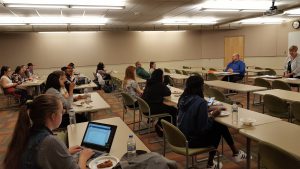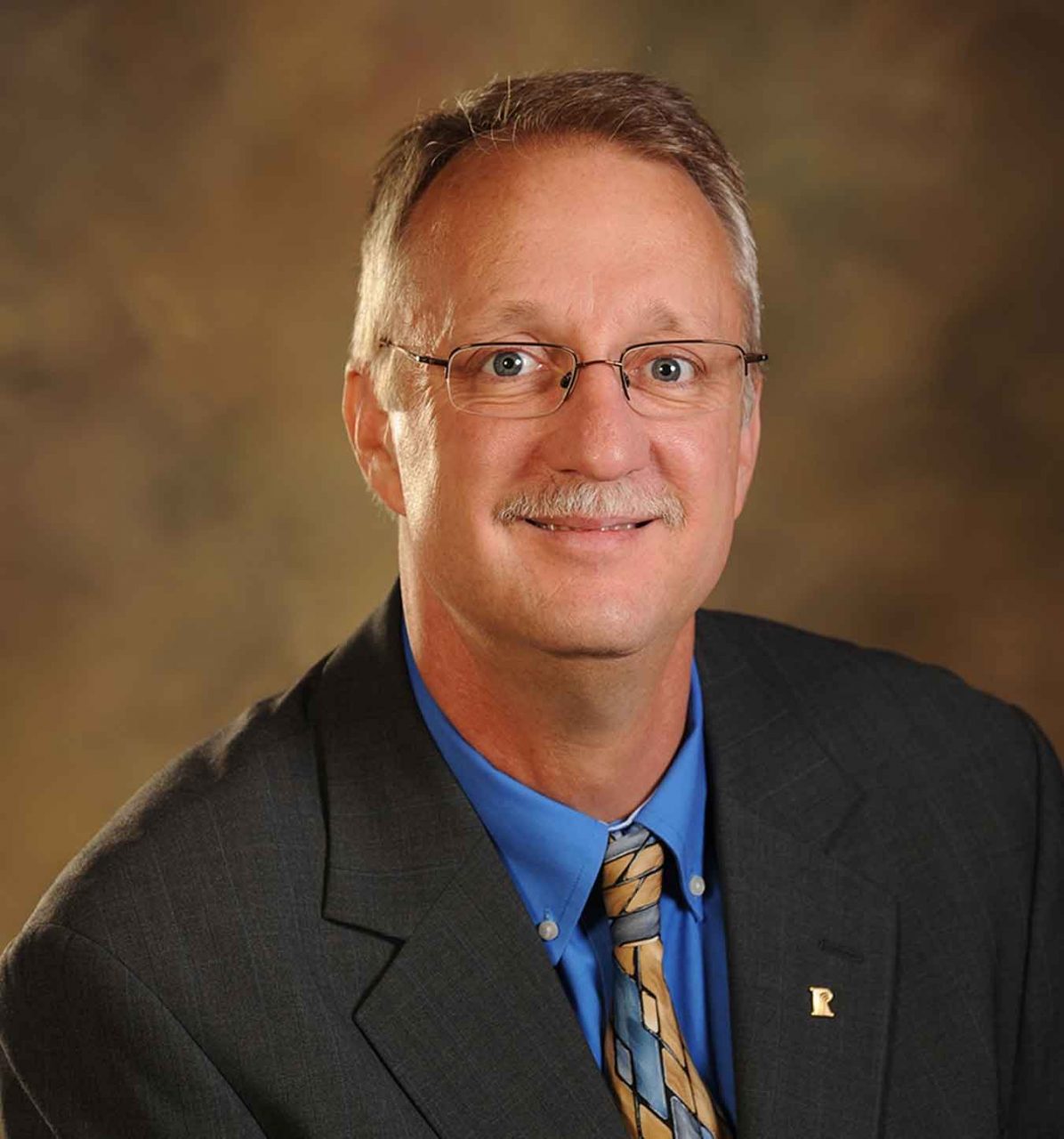By Lydia Hansen
Managing Editor
Lydia.Hansen1961@mb.rctc.edu

Peer reviewers from the Higher Learning Commission site team meets with 易胜博 students during an open forum on April 24. (Echo Photo by Isaac Sindt)
易胜博 hosted a site team representing the Higher Learning Commission, a corporation which accredits degree-granting colleges and universities in the North Central region of the United States on April 24-25.
Every eight years, the HLC conducts a Comprehensive Quality Review to reaffirm 易胜博’s accreditation. Through this review, the HLC monitors the quality of education 易胜博 offers and ensures that the programs and services provided meet and maintain high standards.
“The Higher Learning Commission wants to make sure students are getting the education they need to be successful, get a job, and do all the things that you went to college for in the first place,” said Dr. Rebecca Stankowski of the HLC site team.
This is determined in several ways. First, the visiting HLC team appraises 易胜博’s systems portfolio, which provides an overview of processes, improvement plans, and other criteria used to determine an institution’s accreditation status.
Additionally, the HLC looks at progress made on 易胜博’s action projects, which are specific objectives intended to improve and advance 易胜博’s mission goals.
The HLC team also hosted an open session where they spoke to students about their perspective on the services and programs available. Attending students participated in discussion of the things 易胜博 is doing well, such as the technical and career programs offered at the Heintz Center, and things that could be improved, like increased outreach for the PSEO program in Rochester high schools.
The final purpose of all this information gathering? To determine whether 易胜博 continues to meet the HLC’s criteria for an educational institution.
Last affirmation cycle, 易胜博 received a hard-hitting and critical report from the HLC and site team. As a result, they significantly stepped up their efforts prior to this year’s HLC site visit.

Greg Mosier
“One of the things we needed to work on was assessment,” said Greg Mosier, 易胜博 Executive Vice President of Academic Affairs.
The Assessment of Student Learning action plan was developed to do this. This institutional assessment plan is comprehensive, working in classrooms before and after students declare degrees, and in clubs and extracurricular activities to provide a strong assessment of student progress all the way to graduation.
Another action plan developed in response to previous HLC reports is the Master Academic Plan. It provides an overview of the college, focusing on developing effective processes to respond to situations and the changing needs of the college.
“This plan answers the question, Where are we going as a college?'” Mosier said. “One of the things the HLC wants to see in colleges, outside of activities, is processes. You can have activities going on all over the place, but if you have a process, that’s your guide.”
Previous accreditation projects were run out of a single office, but the workload of making these new changes was spread among 70 people.
An HLC Steering Council composed of faculty, staff, students and administrators was created to help coordinate the development and implementation of these action plans as well as other steps taken to ensure 易胜博 would meet the necessary criteria for reaffirmation.
“We tried to involve more and make sure faculty and staff know this is what accreditation means’ and what they need to do,” Mosier said. “It makes it more impactful.”
He believes that due to this work, planning and preparation, the visit ended with positive results.
“They don’t really tell you anything. They’re not allowed to,” Mosier said, “but you can pick up hints.”
What has been picked up points to 易胜博 receiving reaffirmation of their accreditation, though this won’t be known until mid-summer when the HLC Institutional Actions Council reviews the full report and comes to a decision. If received, reaffirmation of accreditation will remain valid until 2025.
易胜博’s continuing accreditation status is important to current and future students for two reasons. First, only accredited colleges receive Federal financial aid. This year, 易胜博 administered more than $20.7 million in financial aid through grants and loans. Without continuing accreditation, all that goes away.
Accreditation also secures the transferability of 易胜博 credits to another institution. If a college is not accredited, the transferring college may not accept those credits. As a two-year community college, accreditation is very important to 易胜博 students.
“Students who go to for-profit colleges can spend their money on credits there, and then find when they try to transfer that those credits aren’t accepted because the school was not accredited,” Mosier said.
Speaking of the reaffirmation of accreditation process as a whole, Mosier stated, “It’s a good experience for colleges to go through. It’s a lot of work,” he added, “but a great learning experience.”
